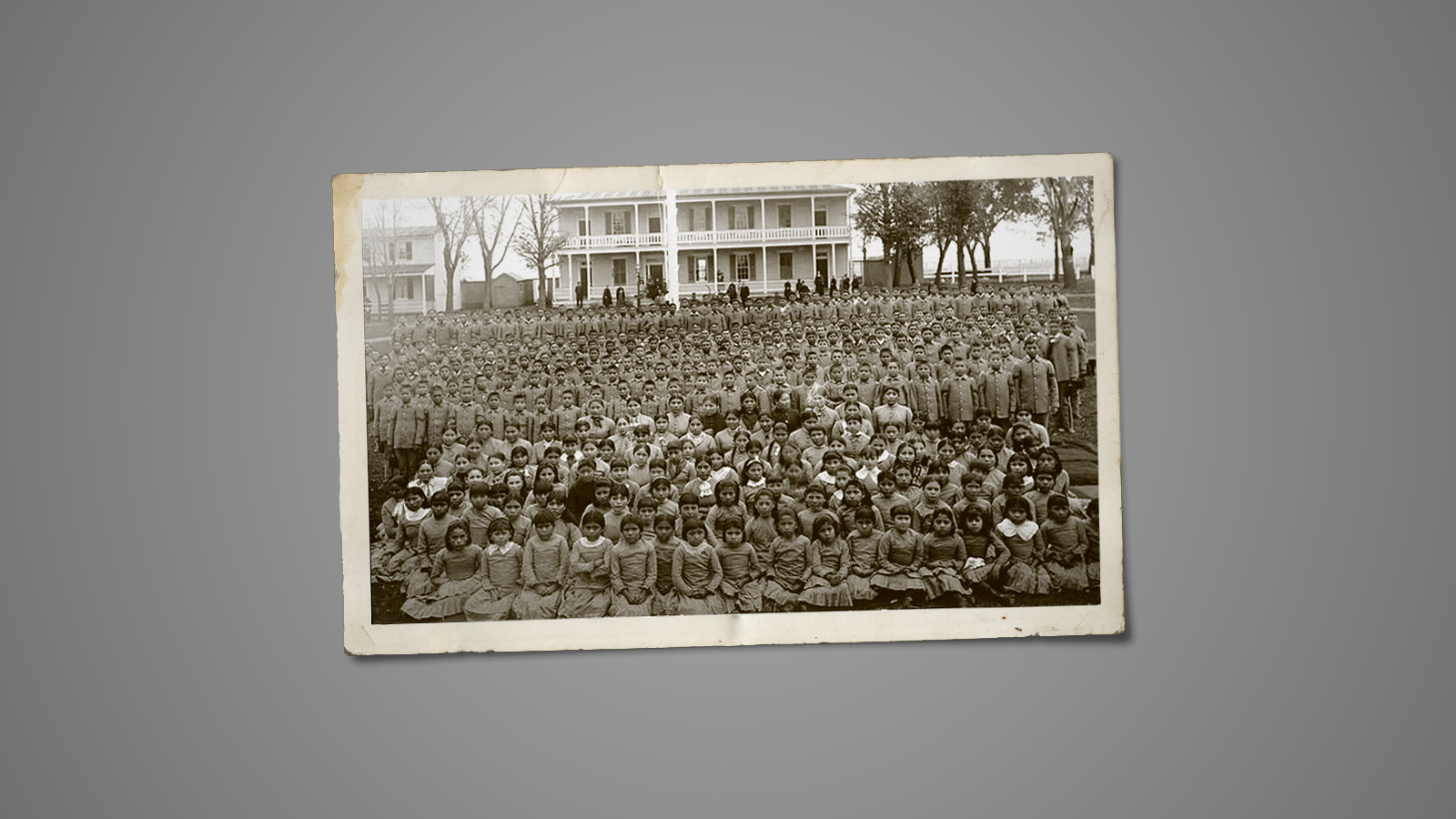In truth, the 367 boarding schools in operation in the U.S. were camps of strategic cultural genocide: This is what achieving civilization looked like in practice:
Students were stripped of all things associated with Native life.
Their long hair, a source of pride for many Native peoples, was cut short, usually into identical bowl haircuts.
They exchanged traditional clothing for uniforms, and embarked on a life influenced by strict military-style regimentation.
Students were physically punished for speaking their Native languages.
Contact with family and community members was discouraged or forbidden altogether.
Survivors have described a culture of pervasive physical and sexual abuse at the schools.
Food and medical attention were often scarce; many students died.
Their parents sometimes learned of their death only after they had been buried in school cemeteries, some of which were unmarked. -The Atlantic
 Jeva Lange | July 2, 2021
Jeva Lange | July 2, 2021
Uncovering the abuses of Indigenous boarding schools will be Deb Haaland's most important legacy...
The horrors of the boarding school system are an open topic in Canada where, earlier this year, the remains of 215 Indigenous children were found in a mass grave at the Kamloops Indian Residential School in British Columbia. That sickening announcement was followed last week by the report of an additional 751 unmarked graves of children found near a residential school in Saskatchewan. Already this week, another 182 graves were found at a former school east of Vancouver, Canada. In total, an estimated 6,000 children are thought to have died at schools in Canada, while "it's likely that the number of students who died in the United States is much higher," Christine Diindiisi McCleave, the executive director of the National Native American Boarding School Healing Coalition (NABS), told High Country News.
GOOD READ: The investigation that will change how America thinks about its past
**
(click headlines)
As recently discovered unmarked Indigenous graves in Canada nears 1000, activists demand justice
New legislation strengthens Oregon’s commitment to help preserve Tribal families
Oregon is the seventh state to pass a state-based ICWA in alignment with the federal act, joining states such as Minnesota and Tennessee. Before the federal act passed in 1978, generations of Tribal children across the country were removed from their families and communities, often placed without connection to their Tribal culture.
“The passage of the Oregon Indian Child Welfare Act (ORICWA) in 2020
spoke to the State of Oregon’s commitment to protecting and
preserving Tribal children and families,” said Adam Becenti, ODHS Tribal
Affairs Director. “The recent changes to ORICWA will now enhance how
Child Welfare engages with Tribal families and strengthen partnership
with Oregon Tribal Nations. This is a significant step forward in
repairing historical wounds and honoring the government-to-government
relationship with Tribal Nations.” MORE






















No comments:
Post a Comment
Please: Share your reaction, your thoughts, and your opinions. Be passionate, be unapologetic. Offensive remarks will not be published. We are getting more and more spam. Comments will be monitored.
Use the comment form at the bottom of this website which is private and sent direct to Trace.